Stirring debate on the threat on NATO's eastern flank
The GIDS (German Institute for Defence and Strategic Studies) had invited to a livestream on YouTube, as we reported yesterday on marineforum.online/ (GIDS live: Threat on NATO's eastern flank) were announced.
The topic "NATO's eastern flank: How great is the threat of war?" not only attracted around 250 guests into the International Maritime Museum Hamburgbut also met with a great response online. Many security policy lectures and debates have already taken place on deck 10 of the historic building, but rarely has the topic been so explosive and topical. The seats on site were fully booked early on, and even at the start of the livestream there were Around 250 registrations.
High-calibre panel
The panellists discussed:
- Marika LinntamAmbassador of the Republic of Estonia to Germany
- Lieutenant General Jürgen-Joachim von Sandrartuntil the end of November 2024 Commander of the Multinational Corps Northeast in Szczecin, Poland
- Konrad Schullerpolitical correspondent for the Frankfurter Allgemeine Sonntagszeitung, who worked as a correspondent for Poland and Ukraine from 2004 to 2018
After the opening by Colonel Klenz from the Command and Staff College of the Bundeswehr managed Captain at sea Dr Andre Pecher introduced the topic as moderator. He described the threat situation at the NATO's eastern flank as a "petri dish" for geopolitical tensions and emphasised the risk of a Russian attack - especially for the Baltic stateswhich he described as "frontline states". The future NATO's orientation and the course of the US government in the room - a topic that hovered unspoken over the entire debate.
Clear words on the security situation
Estonian Ambassador Marika Linntam emphasised the importance of the transatlantic alliance: "We have been allies for 20 years - there is no reason why Europe should not be strongly opposed. Our economy is bigger, our population is many times bigger."
Lieutenant General von Sandrart drew parallels to the Cold War and emphasised that security awareness in the Eastern Europe was already pronounced much earlier than in Berlin. Looking back, he realised self-critically: "I had Putin under control - my real challenge was in Berlin."
Also Konrad Schuller reflected self-critically: he had misjudged Russia just as much as many Western politicians. He shed light on the historical development, starting with Gorbachevabout the Chechen war, up to Boris Yeltsin.
General von Sandrart made the point clearly and unequivocally that for Russia the "window of opportunity" the faster we react as the West. On the timeline, we would have three threats: The one from the East, the more recent one from the West, and very clearly also the one from within. His statement that the problem is not money, but time, was still echoing through the room when the intention of the possible new coalition government to make military investments, which had been finalised in the meantime and became known at the same time, filtered through. This event was impressive, necessary and impressive in its clarity. Andre Pecher asked the Estonian ambassador to make the closing statement and summarise the evening. ConclusionThe Baltic states are self-confidently committed to the alliance and are nationally stable in favour of Western values; Europe is strong and can defend itself if it wants to. The media and politicians should self-critically scrutinise the mistakes of the past decades, and a self-confident approach to the American government is necessary. The key question of the evening General von Sandrart: "What are we standing up for?". By his own admission, he is very reluctant to retire in three weeks' time. The hope remains that this strong voice - like the others - will be heard in politics and society.
The debate can be followed in the livestream - an hour and a half that is well worth it. So far, the stream has been watched almost 1,900 times called.

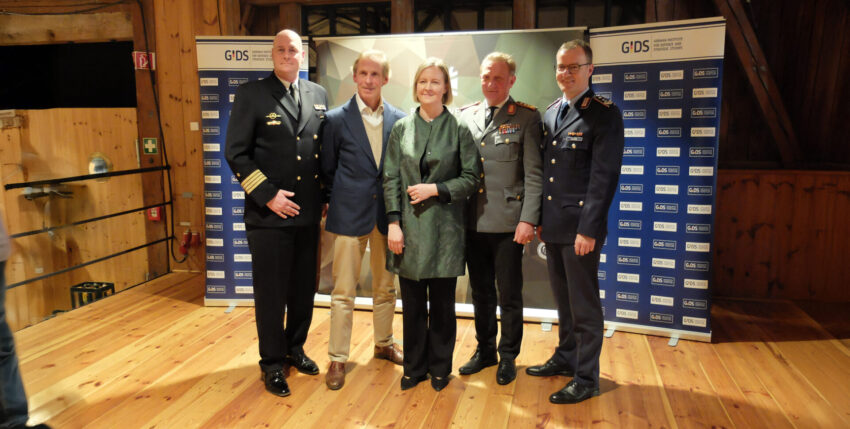





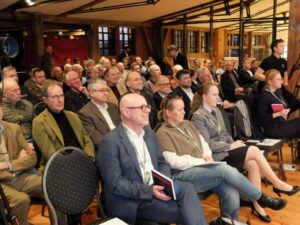
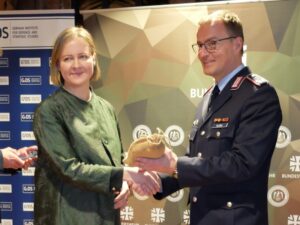
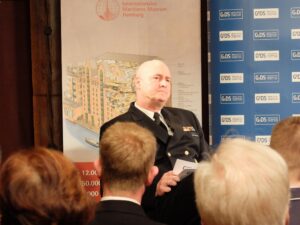
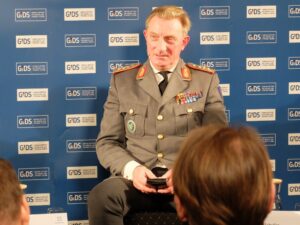

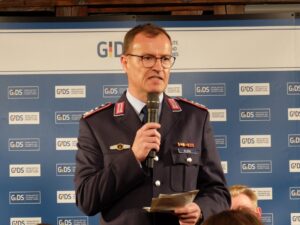


0 responses
Mr Pecher also has a doctorate. There should be that much time.
Otherwise, congratulations on the event. The GIDS is taking flight. Keep up the good work.